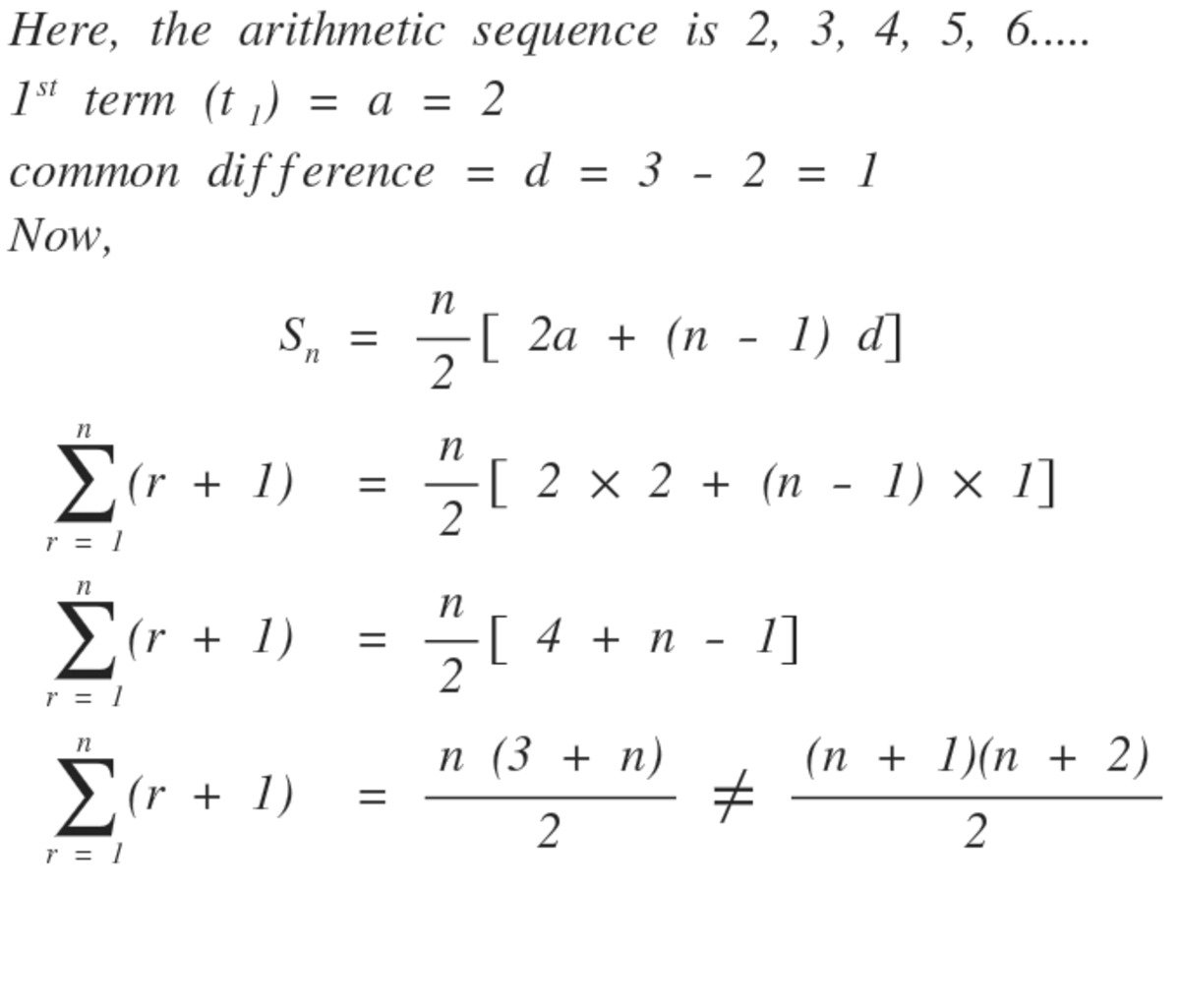Well, just apply induction
r = 1 ∑ n r = 2 n ( n + 1 )
It is well known that the formula for the sum of the first n natural numbers is given as above. Keeping in mind of the formula stated above, is the summation below true?
r = 1 ∑ n ( r + 1 ) = 2 ( n + 1 ) ( n + 2 )
This section requires Javascript.
You are seeing this because something didn't load right. We suggest you, (a) try
refreshing the page, (b) enabling javascript if it is disabled on your browser and,
finally, (c)
loading the
non-javascript version of this page
. We're sorry about the hassle.
3 solutions
Moderator note:
Alternative, you can do this:
r = 1 ∑ n ( r + 1 ) = = = 2 + 3 + 4 + … + n + ( n + 1 ) ( 1 + 2 + 3 + … + n ) + n ( 1 + 2 + 3 + … + n ) + ( n + 1 ) = 2 ( n + 1 ) ( n + 2 )
(Amended)
It fails for n=1. Enough said.
Nice Question Nihar! :D
@Calvin Lin I think there is some flaw in Challenge Master Note because we need to show r = 1 ∑ n ( r + 1 ) − r = 1 ∑ n r = ( n + 1 ) rather than showing r = 1 ∑ n ( r + 1 ) − r = 1 ∑ n r = 0 , because its obvious that r = 1 ∑ n ( r + 1 ) = r = 1 ∑ n r
Log in to reply
I went about solving it just like the Challenge Master did. Here's how I thought about it:
If r = 1 ∑ n r = 2 n ( n + 1 ) , then r = 1 ∑ n + 1 r = 2 ( n + 1 ) ( n + 2 )
But r = 1 ∑ n ( r + 1 ) can be rewritten as r = 2 ∑ n + 1 r
Clearly r = 1 ∑ n + 1 r = r = 2 ∑ n + 1 r because it misses the first term.
Finally, because r = 1 ∑ n + 1 r = 2 ( n + 1 ) ( n + 2 ) and r = 1 ∑ n + 1 r = r = 2 ∑ n + 1 r = r = 1 ∑ n ( r + 1 ) , we have shown that r = 1 ∑ n ( r + 1 ) = 2 ( n + 1 ) ( n + 2 ) .
This is the same work that the Challenge Master did, only I used sigma notation while he expanded it to make it clearer to someone else who was reading it.
Simple, r will be summed from 1 to n and 1 will be added n times. So, n(n+1)/2 + n = n(n+3)/2. The sigma symbol indeed confuses.

I also did this mistake about 2 years ago when I was learning Sigma Notation.
r = 1 ∑ n ( r + 1 ) = r = 1 ∑ n r + r = 1 ∑ n 1 = 2 n ( n + 1 ) + n = 2 n 2 + n + 2 n = 2 n ( n + 3 ) = 2 ( n + 1 ) ( n + 2 )